Norman Lear, 1922-2023
A television icon is gone at 101.
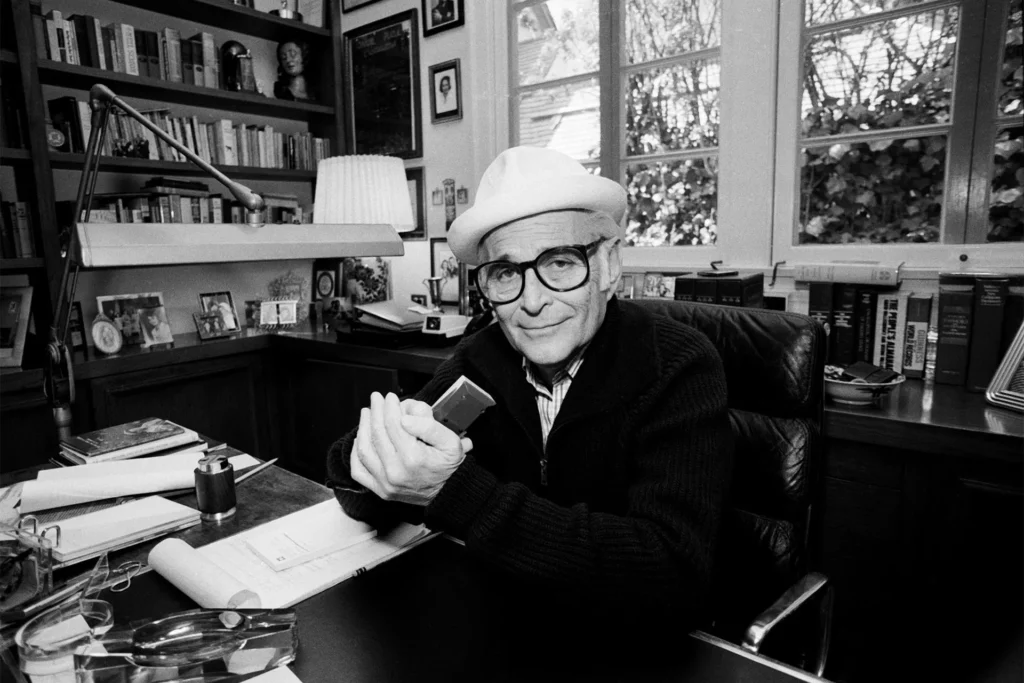
NPR, “Norman Lear, who made funny sitcoms about serious topics, dies at 101“
Norman Lear, who addressed serious issues in humorous sitcoms, died Tuesday in Los Angeles at the age of 101. Matthew Lawrence, a spokesperson for the family, said the producer and screenwriter died of natural causes. Lear was hailed for producing beloved television shows like All in the Family and The Jeffersons, and later, for his work as a political activist.
A post on his Facebook page said that he was “surrounded by his family as we told stories and sang songs until the very end.”
The families in Lear’s shows had conversations about the real things that were going on in the 1970s. Before these shows, television worlds were simpler, nicer places, says Darnell Hunt, a leading scholar of racial representation on TV. They had plot lines like: “I burnt the pot roast. What are we gonna do we don’t have anything for dinner. Or I have a talent show at school and I don’t know how to dance.”
Then Lear’s roster of hit ’70s sitcoms revolutionized television.
“Those shows took on issues that couldn’t be resolved,” Hunt says. “They were issues that were at the heart of inequality and struggle in American society. He tackled everything from homophobia, sexism, racism, you name it.”
If you watched All in the Family, you probably already have a sense of Lear’s own family. Archie Bunker is reminiscent of Lear’s own father, Edith was based on his mother, Jeanette, and America knew Lear’s ex-wife Frances as the character Maude.
Lear grew up in a Jewish family in Connecticut. “I was a kid of the Depression,” Lear told NPR in 2012. “I saw my father’s brothers go belly up. My father was always belly up. It’s very difficult for me to call my father what he was, so I use ‘rascal.’ He served time. He was in trouble a lot with the law. … But I can’t overstate how much I loved him. You hear me talk about him lightly because I cannot make him a villain. I loved him.”
Lear dropped out of college and enlisted in the Air Force to fight in World War II. In his late 20s, he moved to Los Angeles. He struggled for several years, selling furniture door to door, taking baby pictures. Eventually, he talked his way into writing for a nightclub comedy act, which led to variety show gigs.
“He worked for Dean Martin and Jerry Lewis, and then Martha Raye — this is a kind of who’s who of television in that era,” says Marty Kaplan, founding director of the Norman Lear Center at the University of Southern California.
By 1971, Lear was almost 50. He had produced and directed some shows and movies, and his life was about to change.
“I’d read in TV Guide about this British show Till Death Us Do Part,” Lear recollected in the DVD set The Norman Lear Collection. “That dynamic of the father and the son and the political arguments and the bigotry and so forth — that was my father,” Lear says. “I grew up with that. I couldn’t believe it hadn’t been my idea, it was so clearly a show.”
So he decided to make his own version. He cast stars like Carroll O’Connor and Jean Stapleton and he got a pilot filmed. But Lear had to fight for years to get All in the Family on air.
When it finally did air, viewers got this warning first: “The program you are about to see is All in the Family. It seeks to throw a humorous spotlight on our frailties, prejudices and concerns. By making them a source of laughter, we hope to show — in a mature fashion — just how absurd they are.”
The network was prepped for lots of complaints about the family patriarch, Archie Bunker’s, unbridled racism. But people got it — and All in the Family made it to the top-10 for eight of its nine seasons.
“I set out to make people laugh, truly to make people laugh,” Lear said. “But we approached it seriously. Our writers read two, three newspapers a day, paid a lot of attention to their kids and families, came in to talk about everything that was affecting us in our daily lives. And that’s where we got our material.”
All in the Family was the beginning of Lear’s sitcom reign. Edith’s cousin Maude, spun off her own show. Maude’s housekeeper Florida and her family became Good Times — about a black family struggling with poverty.
And then came The Jeffersons, about a black family on its way up.
“The Jeffersons were unabashedly black,” says Darnell Hunt. “It tried to engage race and class dynamics and gender dynamics at the same time. I remember The Jeffersons growing up, I remember feeling like, there really isn’t anything else like this on TV so I have to watch this.”
Hunt says the portrayal of a black family was far from perfect, but it had a level of realness that black audiences could relate to. The Jeffersons ran for 11 seasons — one of the longest running sitcoms on television. It became another Lear success story.
“He had at one point, three out of the five top shows on television, and this was a time when there were only three networks,” says Kaplan. “Routinely, a show might get 50 or 60 million viewers. He was in direct contact with the living rooms and families of the country.”
Lear took that reach seriously. He routinely fought with executives to get on storylines that reflected the social upheaval of the ’70s, with the black power movement and women’s liberation.
“It didn’t escape our notice also that if you can get people to care when they laugh, they will laugh more,” Lear told NPR in 2008.
New York Times, “Norman Lear, Whose Comedies Changed the Face of TV, Is Dead at 101“
Norman Lear, the television writer and producer who introduced political and social commentary into situation comedy with “All in the Family” and other shows, proving that it was possible to be topical as well as funny while attracting millions of viewers, died on Tuesday at his home in Los Angeles. He was 101.
[…]
Mr. Lear reigned at the top of the television world through the 1970s and into the early ’80s, leaving a lasting mark with shows that brought the sitcom into the real world.
“The Jeffersons” looked at the struggles faced by an upwardly mobile Black family; a very different Black family on “Good Times” dealt with poverty and discrimination. The protagonist of “Maude” was an outspoken feminist; the heroine of “Mary Hartman, Mary Hartman” was plagued by all manner of modern-day problems, not least her own neurosis.
“You looked around television in those years,” Mr. Lear said in a 2012 New York Times interview, referring to the middle and late 1960s, “and the biggest problem any family faced was ‘Mother dented the car, and how do you keep Dad from finding out’; ‘the boss is coming to dinner, and the roast’s ruined.’ The message that was sending out was that we didn’t have any problems.”
Mr. Lear’s shows sent different messages, far more in tune with what was actually happening in those turbulent times. His crowning achievement was “All in the Family,” and his greatest creation was Archie Bunker, the focus of that show and one of the most enduring characters in television history.
An unapologetic bigot who was seemingly always angry at one minority group or another (and usually at least one family member as well), Archie, memorably portrayed by Carroll O’Connor, was also, with his malaprops, his mangled syntax and his misguided enthusiasm, strangely likable.
[…]
“Maude,” which ran from 1972 to 1978 on CBS, centered on Edith Bunker’s cousin Maude Findlay (Bea Arthur), who was as much a doctrinaire liberal as Archie was a determined denizen of the far, far right. The show dealt with alcoholism, pot smoking, abortion (Maude herself had one, in a two-part episode that generated outrage as well as applause) and other subjects to which that quick-tongued title character could apply her shrill wisdom.
George Jefferson (Sherman Hemsley), the central character of “The Jeffersons,” was a Black man who ran a successful dry-cleaning business in Archie’s neighborhood and whose disdain for white people rivaled Archie’s for Black people. “The Jeffersons,” the story of George’s life with his newly moneyed family after they moved to the East Side of Manhattan, ran on CBS from 1975 to 1985.
Not all of Mr. Lear’s shows grew out of Archie’s universe. One that did not, “Mary Hartman, Mary Hartman,” raised as many eyebrows as “All in the Family.”
A five-episodes-a-week spoof of soap operas, “Mary Hartman, Mary Hartman” was the story of a television-obsessed housewife (Louise Lasser in the title role) in the fictional small town of Fernwood, Ohio, who had more than her share of calamity: Her grandfather was a flasher, her mother was a flake, her husband was cheating on her, their daughter was kidnapped, and Mary herself had a breakdown on live TV.
[…]
Other Lear shows had longer lives. “Sanford and Son,” starring the longtime Black comedian Redd Foxx as an irascible junk dealer — and, like “All in the Family,” based on a successful British sitcom — ran on NBC from 1972 to 1977. “One Day at a Time” (CBS, 1975-84) concerned a divorced woman (Bonnie Franklin) living on her own with two teenage daughters. “Good Times” (CBS, 1974-79), a spinoff of “Maude,” was the story of a hard-working Black woman (Esther Rolle) struggling to raise a family in a Chicago housing project — at first with her husband (John Amos) and then, when Mr. Amos was let go, as a widow. (Ms. Rolle herself left the show after the fourth season, unhappy with the direction it had taken, but returned a year later.)
Washington Post, “Norman Lear, who brought social commentary to the sitcom, dies at 101“
Norman Lear, the TV writer and producer who transformed the bland porridge of situation comedy into a zesty stew of sociopolitical strife and brutally funny speech and who gave the world such embattled comic archetypes as Archie Bunker, Fred Sanford, Maude Findlay and George Jefferson, died Dec. 5 at his home in Los Angeles. He was 101.
[…]
Mr. Lear’s entertainment career spanned the late 1940s to the 21st century, and he also found prominence in later life as a liberal political activist. But his legend was sealed in the 1970s, when he created a handful of shows that transformed the television medium into a fractious national town meeting and showcased the American family in all its hopes and dysfunctions.
Racial prejudice, divorce, rape, Black inner-city struggle, upward social mobility — themes almost nonexistent on commercial television — were suddenly brought to compelling life through Mr. Lear’s juggernaut of hits, including “All in the Family,” “Sanford and Son,” “Maude,” “Good Times,” “The Jeffersons” and “One Day at a Time.”
Far from sermonizing, the shows were master classes in broad comedy. Their success was undeniably due in large measure to the actors, who brought shadings of empathy to troubled, worried and often deeply flawed characters.
“Norman Lear took television away from the pimps, hookers, hustlers, private eyes, junkies, cowboys and rustlers that constituted television chaos, and, in their place, he put the American people,” screenwriter Paddy Chayefsky once observed. “He took the audience and put them on the [TV] set.”
By the 1990s, the adult sensibility that Mr. Lear brought to television found a new home in cable drama. “You can trace the impact of his shows in ‘The Sopranos,’ ‘The Shield,’ ‘The Wire,’ wherever you have complex characters of questionable morality,” said Ron Simon, a curator at the Paley Center for Media in New York. “Nothing was ever neatly wrapped up in Lear’s world.”
Vanity Fair, “Norman Lear, Television Pioneer, Dies at 101“
TV writer/producer Norman Lear, who died Tuesday at his home in Los Angeles at the healthy age of 101, enjoyed a career that stretched more than half a century, from the dawn of the medium to South Park. But he’s best remembered for the half-decade in the early 70s when he had as many as five hit comedies in primetime. During that brief period, he completely rewrote the rules of television, demonstrating that the situation comedy could address topical and controversial issues without sacrificing laughs or heart—or ratings.
Born in New Haven, Connecticut, Lear became a pilot in World War II and flew 52 combat missions. Moving to Hollywood to be a comedy writer, he got his first big break when he tricked a receptionist into giving him Danny Thomas’s phone number, then rang up the comic and sold him a routine over the phone.
Soon Lear was working as a writer and director on TV variety shows. In 1958, he and Bud Yorkin founded Tandem Productions, the shingle under which they’d produce their legendary 70s sitcoms. Meanwhile, Lear continued to hone his craft and even broke into movies, earning an Oscar nomination for his 1967 screenplay, Divorce, American Style and writing and directing the anti-smoking satire Cold Turkey in 1971. But what altered his career forever were two British shows: Til Death Do Us Part and Steptoe and Son, that he would transform into his first American sitcom hits, All in the Family and Sanford and Son.
Lear made over TV in his own image. What appealed to him about Til Death, and what he replicated in All in the Family’s battles between Archie and Meathead, was the similarity to Lear’s arguments with his own father. Sanford and Son had a similar father-son dynamic. In Maude, the main character embodies both the blowhard parent and the liberal child. In The Jeffersons and Good Times, the families happen to be black, but the angry father is still there.
Lear had the good fortune to come along at a time when network TV—and CBS in particular—wanted to change its image. Television comedy had spent most of the 60s conspicuously avoiding the decade’s real-life controversies and schisms. CBS had a number of homespun hit shows like The Beverly Hillbillies and Green Acres, but the network accountants had discovered that, rather than broadcast shows the whole nation might enjoy, it could make more money narrowcasting, catering to the affluent, younger, metropolitan audiences. Despite their high ratings, the networks tossed those programs in favor of shows like Lear’s, as well as The Mary Tyler Moore Show, M*A*S*H, and The Bob Newhart Show. These shows, too, made topical references and assumed a progressive audience, but not to the extent that All in the Family did.
Rolling Stone, “Norman Lear, Pioneering TV Producer of ‘All in the Family’ and ‘The Jeffersons,’ Dead at 101“
Norman Lear, the groundbreaking TV producer who smashed boundaries with politicized sitcoms such as All in the Family, helped diversify network television with shows The Jeffersons and Good Times, and used the half-hour comedy to address social issues and taboo, hot-button topics, died Tuesday at his Los Angeles home. He was 101.
[…]
Lear was sometimes asked if the series’ popularity had to do with attracting viewers who were just like Archie. “Maybe they continued to agree with Archie Bunker — you can’t change people’s minds, but you can get them to think,” he replied. Lear himself had another explanation for the show’s success — that dispelled one particular TV myth. “The myth is: ‘The average man doesn’t want to come home from a hard day’s work and be faced with problems on television. He wants escapism, entertainment, fluff,’” Lear told the Senate Subcommittee on Constitutional Rights in 1972. “All in the Family has tackled many everyday problems and the average American, returned from his hard day’s work, has not only accepted it but made it the most popular show on TV.”
Lear continued moving into that uncharted TV territory with Maude, an All in the Family spinoff centered around the older, left-wing title character played by Bea Arthur. Lear would later say that, of all his characters, Maude spoke to him the most. “She was the out-front liberal but didn’t really take responsibility for knowing what she was talking about all the time, which is what most of us do,” he once said. “We deal from our feelings more than from the information and the facts.”
Lear also created or developed arguably the first TV series centered around Black families: Sanford and Son (like All in the Family, adopted from a British series with the same premise), The Jeffersons, and Good Times. As with All in the Family and Maude, the shows intercut humor with messages. When Lear read an article about the rise in hypertension in Black men, the story became the basis for one episode. “By the time we went into reruns, we knew that we had to have an advisory at the end of it, advising where people could turn for help,” Lear said. “Because we had had so many calls on the first show that were unanticipated. There were lots of examples of that.”
“You have to go back to Norman Lear,” Good Times star Jimmie Walker later said. “He just really pushed it. Things like the ‘Black Jesus’ show [in which Walker’s character, the lazy but artistic J.J., paints Jesus as Black], it’s still socially relevant. People are still slugging that out today.”
When someone famous dies at such a ripe old age, decades removed from their heyday, it’s hardly tragic but a time for reflection and reminiscence. I was barely five years old when All in the Family debuted in January 1971 and it was definitely among the shows I watched with my parents growing up—along with literally all of the Lear hits, often rewatching them in reruns and in syndication. I’m pretty sure we even saw a few episodes of Mary Hartman, Mary Hartman, although I mostly just remember the name of the show.
From a pretty young age, I was exposed to commentary about how groundbreaking the shows were but, because I really had no real-time experience with the television that preceded them, it just never seemed unusual to me that the shows featured flawed characters. Or that Black people would appear on TV as normal families, with the same sort of problems that White people had—with perhaps a bit of racism thrown in.
If I had known that Archie Bunker was based largely on Lear’s father, I had forgotten. But it makes sense, in that he made him (and George Jefferson) mostly likable even though his bigotry was being lampooned as an object lesson. That was much more effective—and, certainly, more entertaining—than simply making him objects of ridicule.

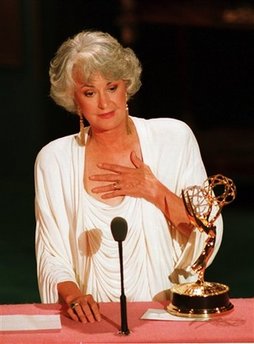
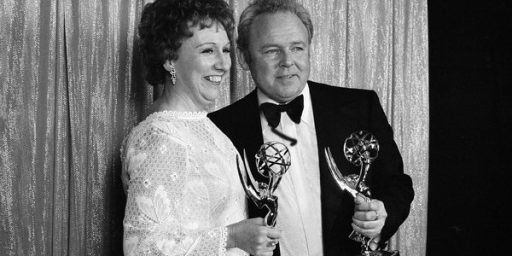

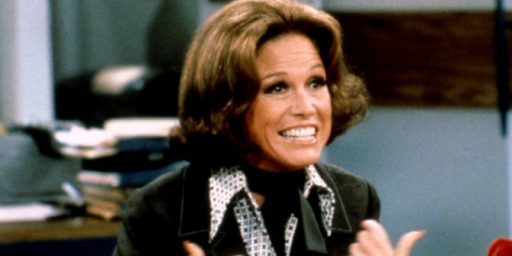
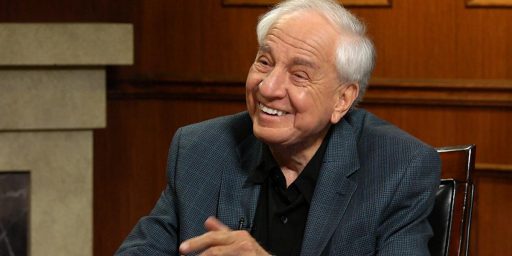
If you look, you can always find well crafted TV, film and books that portray complicated characters as whole human beings, but it’s not the norm on network television. Norman Lear got more shows like that in front of national audiences than just about anyone else. I find today’s “groundbreaking” and “controversial” shows to be closer to morality plays, where the heroes are saints and the villains tedious stereotypes. Fortunately there is a hell of a lot more non-network TV and literature than ever before.
A man in the prime of his life cut down so early? I wonder if he was vaxxed.
The main thing I remember about Mary Hartman, Mary Hartman is that it introduced me to Martin Mull, who had a very unusual style of comedy. Still a fan now.
I was just the right age to watch and absorb All in the Family. “Archie Bunker” was a phrase you could use to describe a certain kind of person after a while.
And let me just note that when NL talks about people who weren’t that good, but whom he will speak lightly of because he loved them … I get it. Not my father, but yeah. I knew folks like that, too.
Hard to say it’s a truly sad day because this extraordinary man lived over a hundred years, and according to his memoirs and pretty much every interview, loved all of it. But a deep sense of respect for who he was, what he made, and what he stood for. They don’t make them much better than this.
It’s good to hear about somebody dying at an advanced age after a life well-lived, so that I can say ‘the world was better for him having lived’.
Of all the shows by Lear listed, the only one I can recall watching is The Jeffersons (which was really good). I’ve heard of the others, but don’t recall seeing them.
I know I never saw an ep of All In the Family. It doesn’t seem like the kind of show that would do well in Mexico, and by the time we got cable and I could understand English, it was already off the air.
The odd thing is when I saw “Norman Lear,” I did know who he was.